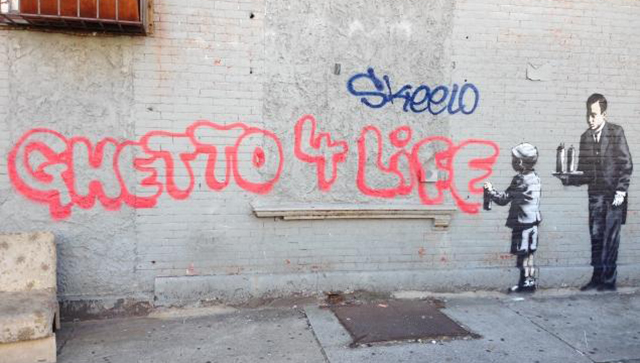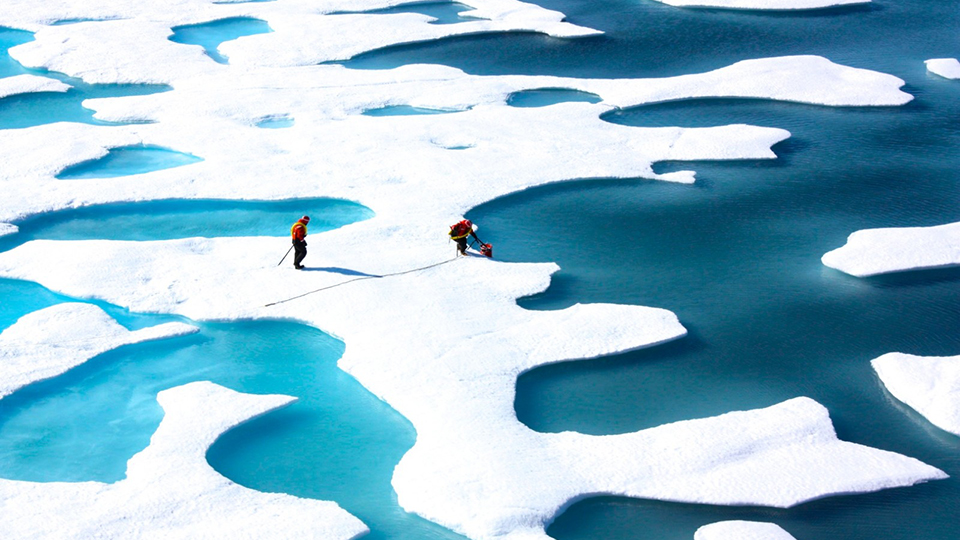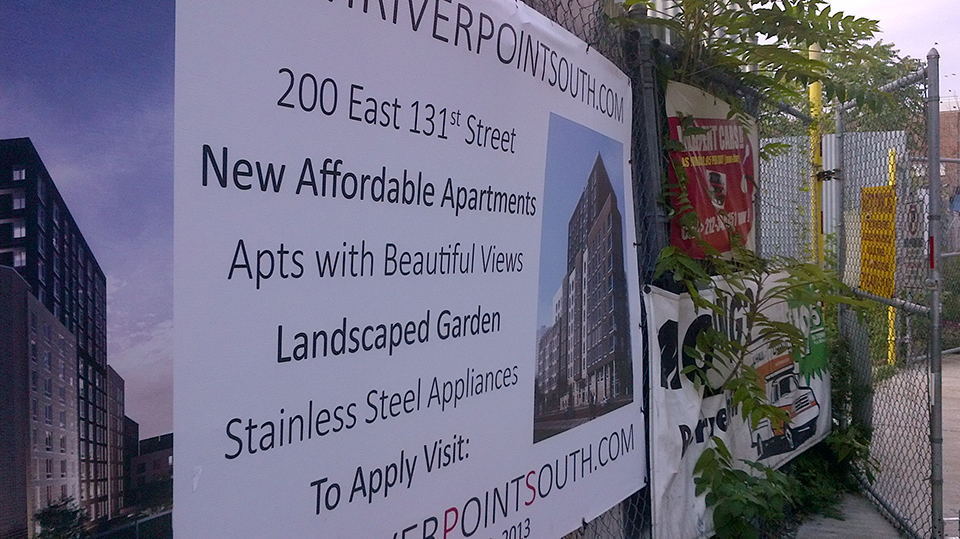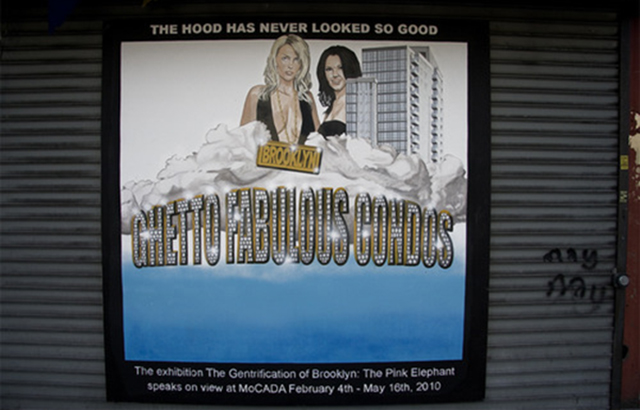
Have you ever been caught tapping a friend's phone calls? Called out for the exploitive maltreatment your employees? Are you a multi-billionaire prone to going through the pockets of black youth in the hopes of finding marijuana?
Consider talking about your concern for the environment, particularly the effects of climate change. Leading governments, corporations, and political figures under fire for civil and human rights violations are giving it a whirl.
Greening Injustice
After the New York Times, via documents provided by former security contractor Edward Snowden, revealed on February 16 that the NSA had spied on Indonesia and U.S. attorneys representing the nation, John Kerry found himself in a tough spot. He was visiting Indonesia at the time. What did he say when he took the podium in Jakarta? He warned the country about climate change.
"President Obama and I believe very deeply that we do not have time for a meeting anywhere of the Flat Earth Society," Kerry told the press. Never mind that the U.S. outranks Indonesia in greenhouse emissions. Forget that the U.S. has fought against reparation initiatives that would see historically high emitters in the West providing poorer nations like Indonesia with funds to move off fossil fuels.
The following day, Walmart CEO Doug McMillon addressed executives in a web-broadcasted meeting in Bentonville, Ark.
“Rather than focusing on defending ourselves,” McMillon said, “or fighting back where we thought someone was wrong, what if we simply focused on changing the company and trying to make it better?”
He wasn't referring to Making Change at Walmart, a campaign that is pressuring the $17 billion company to provide its U.S. workforce with $25,000-a-year base salary. Nor was he responding to calls from labor groups that it sign a safety standards agreement that would ensure its contractors in Bangladesh take measures to prevent future catastrophes like the Rana Plaza factory collapse and the Tazreen factory fire, which have killed hundreds of sweatshop workers at Walmart's suppliers. At Walmart's annual Global Sustainability Milestone Meeting, McMillion talked about the company's commitment to going green.
He and other executives who took the stage said they prided themselves for pushing the company closer to moving toward utilizing renewable power and becoming a zero-waste corporation. But one set of figures was left out of the meeting: greenhouse emissions from Walmart's supply chain, which total more than 21 million tons annually. According to a report last fall from the Institute for Local Self-Reliance that factors in supply chain emissions, “If Walmart were included in the Greenhouse 100 Polluters Index, a list that is limited to heavy industrial firms, such as oil companies and power plants, the retailer would take the 33rd spot, just a hair behind Chevron.”
Climate change is a very real and dangerous phenomenon. Many scientists consider it hard to imagine us having a habitat in the coming decades if we keep pumping heat-trapping greenhouses gases into the atmosphere. On our current course, over the next century our climate will change at a rate that is “at least 10 times quicker than any climate shift in the past 65 million years,” researchers at Stanford's Woods Institute for the Environment warn.
“We have thousands of cities on coastlines around the world,” said James Hansen, formerly of NASA's Goddard Institute for Space Studies, following Superstorm Sandy in New York. “If we allow fossil fuel use to continue on business as usual we guarantee that over the coming decades we will begin to see large changes in sea level and we will loose all of those cities.”
Our species has mapped itself across the globe to meet the demands of industrialization and the flow of capital, and we're clustered in large cities along coastlines particularly vulnerable to the rising tides of a warmer planet.
But why are those who have insisted on making our habitat so difficult to live in now the ones harping on the legacy we leave our children?
The Green Mayor?
This question comes to mind with the recent appointment by UN Secretary General Ban Ki-moon of former New York City mayor Michael Bloomberg to serve as the UN's Special Envoy for Cities and Climate Change.
Author Danny Katch outlines Bloomberg's political ideology:
First, that the philosophy of enriching the already rich so their wealth will "trickle down" is the only realistic path for cities if they want to avoid becoming the next Detroit; and second, that a business model of urban government not only benefits the wealthy but also produces better performance in city services—especially schools and policing.
Financial and real-estate interests have dominated New York since the decline of the city's dockside industries in seventies. Bloomberg served as their mayor and he was rewarded handsomely for it. Already a billionaire upon taking office through the sale of financial terminals, he used the mayor's seat to keep taxes low for Wall Street, which in turn, helped his own business, Bloomberg LP, double in profits. His personal wealth grew more than fivefold, from $4.8 billion to $27 billion over the course of his three terms.
With the stated objective of turning New York into a “luxury product,” Bloomberg shuttered 162 public schools and replaced them with charter schools often funded by Wall Street. Twelve hospitals were shut down. St Vincent's in Manhattan's West Village will be replaced by a high-end condo development. Rents soared and number of people without a roof to rely on rose 73 percent.
Additionally, hundreds of thousands of people, primarily youth of color, were searched without probable cause by the New York Police Department. The stated aim of the law enforcement tactic – a policy known as “stop, question, and frisk” – was to deter gun violence. But more often than not, the few targets of the pat downs who were brought up on actual charges were apprehended not for possessing a deadly weapon, but for marijuana.
The harassment of young blacks and Latinos was most severe in areas experiencing an influx of wealthier, white residents, correlating with the interests of the city's real estate agencies and brokerage firms who refurbished long decaying housing units to make way for richer (frequently white) inhabitants.
The gentrification process was aided with public funds. New layers of concrete ensured a smooth commute for the preferred costumers of landlords. Fresh grass covered the trodden mud of parks once off the budget radar, not only increasing property values but helping Bloomberg boost his green credentials.
Much like Walmart and the Obama Administration, Bloomberg used climate change, as well as public health initiatives like banning smoking in restaurants, bars and public parks, as well as trying to outlaw large surgery drinks, as a way to change the conversation away from his more substantive policies that have affected the daily lives of most New Yorkers.
But even the superficial initiatives he took in regards to climate change lacked substance. His PlanNYC, an effort to make the city more environmentally sound, provides a good example. It included a provision to switch New York's old boilers from oil to natural gas, which has led to an increased reliance on greenhouse-intense fracking. One new fracked gas pipeline has already been completed in the West Village, another is underway that will run through the Jamaica Bay Wildlife Preserve.
Writer Fran Lebowitz brilliantly mocked Bloomberg's green credentials in a conversation with staff at the New York Times. “[H]e’s the 'green mayor?'” she asked. “He’s the green mayor who travels by private jet. There is nothing more polluting than jet fuel. One of his little trips on his private jet. . . that is every cigarette ever smoked in the history of New York City.”
Remarking on the Bloomberg Administration's partnership with taxpayer bailed-out CitiBank to place bicycles on street corners around New York (which are notably absent from the city's poorer neighborhoods), Lebowitz continued:
I don’t know how many of these bikes there are, but it seems like there are 80 million of them. I do not want to see 80 million ads for Citibank. When they first put them in, Bloomberg said, “Wasn’t that nice of Citibank? They gave us these bicycles.” Really? Let me put it this way: I would rather see Citibank give us back our money, and then I would buy them a bicycle. And also maybe a skateboard, if they’re really good.
Gentrifying the Globe
While Bloomberg was busy stacking up green kudos and amassing private wealth through the power of his public office, life became more and more difficult for New York's working class and citizens of color. Thousands were pushed by gentrification to the city's farthest coastal limits. When Superstorm Sandy hit – the result of a warmer, higher Atlantic Ocean (i.e., climate change) – their homes stood directly in its path. As their residences were flooded, as their heat and electricity went out and, later, when mold started to grow on their walls, the Bloomberg Administration did scant to aid the city's most vulnerable. He even hesitated to cancel the New York Marathon. Hundreds of generators designated for festivities surrounding the race stood disused in lots beside waterlogged homes in Staten Island, where people lit bond fires for warmth at night.
When Bloomberg attempted to survey the damage done by Sandy in Far Rockaway, Queens, he was heckled by people waiting for aid from the city. “There's old ladies in my building who got nothing,” one Rockaway resident complained. “We can't even get a bottle of water, a hot chocolate, a coffee.”
“We covered two children with blankets last night, freezing and shivering,” said a woman with one of many ad-hoc relief centers that sprang up independently of the Bloomberg Administration.
Much of the relief effort was actually spearheaded by a group of young people Bloomberg had violently evicted from the gates of Wall Street one year earlier. Calling themselves Occupy Sandy, activists went door-to-door checking on the elderly and infirm and delivering them food, water, and medicine. They organized drop-off and pick-up sites for relief supplies in all five boroughs and coordinated their efforts with existing community groups. They established field hospitals and later helped storm survivors fill out paperwork to receive financial assistance and navigate complicated local and federal bureaucracies. They organized communities to advocate for themselves at public hearings on the rebuilding process, demanding funds for renewable energy and sustainable housing.
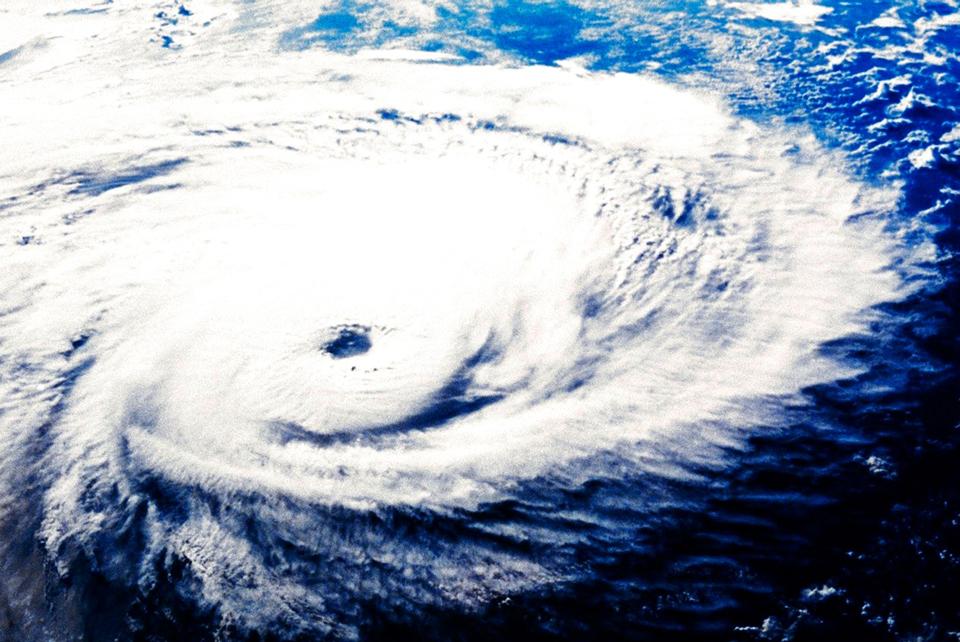
With storms like Sandy now expected every three to twenty years the people who took charge where Bloomberg faltered are the real envoys to cities and climate change, though the UN won't be acknowledging them anytime soon. Their vision of the future calls for a richer community life, for inclusion and accountability from elected leaders, for a sustainable and just rebuilding of cities from the bottom-up – in other words, pretty much the opposite of everything Bloomberg stood for as mayor.
Instead, we can look forward to the Bloombergification of more global cities – more corporate-public partnerships that are nothing more than superficial PR campaigns while Sandy's sisters show us their teeth, waiting to bite.
Just as in New York, the primary victims of climate change worldwide are those who are already vulnerable: women, the poor, minorities. Extreme weather compounds extreme inequality. But Bloomberg's corporate, top-down approach to combating climate change has essentially been adopted by the UN itself. The Secretary General's appointment of Bloomberg as the climate envoy for cities post follows the tapping of corporate and business leaders to run the UN's High-level Group on Sustainability for All. Bank of America Chairman Charles Holliday, whose bank has billions invested in coal and mountaintop removal, heads the commission.
On September 23, the UN is planning a climate summit in New York. Unlike past summits, according to the UN's website, this one is “aimed at catalyzing action.” One wonders what the previous UN gatherings on climate were for. In any case, it will likely fall to those who plan to protest outside the conference to catalyze real change.
3 WAYS TO SHOW YOUR SUPPORT
- Log in to post comments

